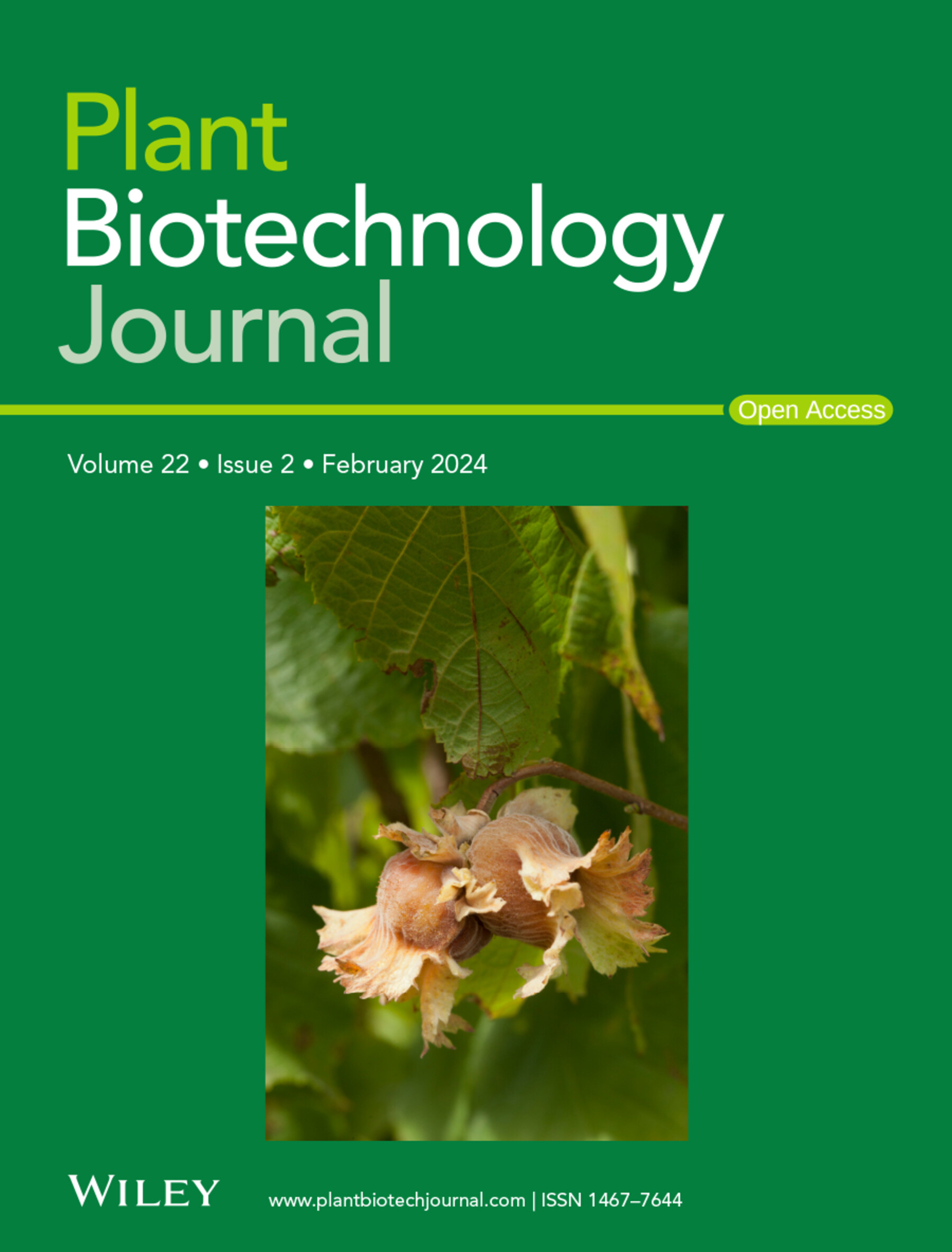MsWRKY49 Modulates Pollen Tube Elongation in Response to Boron Deficiency by Regulating Reactive Oxygen Species Homeostasis in Alfalfa.
IF 10.5
1区 生物学
Q1 BIOTECHNOLOGY & APPLIED MICROBIOLOGY
引用次数: 0
Abstract
Boron, an essential micronutrient, plays a crucial role in plant reproductive processes. Boron deficiency is widespread in many regions and significantly reduces alfalfa (Medicago sativa) seed yield, yet the molecular mechanisms underlying its impact on reproductive organ development remain elusive. This study found that boron deficiency inhibited alfalfa pollen tube elongation and was accompanied by elevated reactive oxygen species (ROS) levels in the pollen tube. The application of exogenous hydrogen peroxide (H2O2) and ascorbic acid (AsA) indicated that maintaining ROS homeostasis was crucial for boron-mediated pollen tube elongation. Based on phylogenetic tree analysis and expression pattern analysis, MsWRKY49 was identified as a central regulator responding to low boron. Transgenic analysis showed that mswrky49 mutants alleviated the pollen tube phenotype and reduced ROS accumulation under low boron conditions, while overexpression of MsWRKY49 in alfalfa pollen tubes led to boron sensitivity declining and ROS accumulation. Furthermore, RNA-Seq analysis revealed that several antioxidant-related genes were significantly downregulated in the MsWRKY49-OE lines. Yeast one-hybrid and luciferase reporter assays demonstrated that MsWRKY49 suppressed the expression of MsAPX1, MsGSTU19, MsNADH and MsCu/Zn-SOD, thereby potentially leading to ROS overaccumulation and inhibiting pollen tube elongation. Our results reveal that MsWRKY49 inhibits pollen tube elongation under low-boron conditions by promoting ROS accumulation, providing a new perspective for understanding the molecular mechanism by which boron deficiency causes the decline of seed yield in alfalfa.MsWRKY49通过调控紫花苜蓿活性氧稳态调节缺硼条件下花粉管伸长
硼是一种重要的微量元素,在植物生殖过程中起着至关重要的作用。缺硼在许多地区普遍存在,并显著降低苜蓿种子产量,但其影响生殖器官发育的分子机制尚不清楚。本研究发现缺硼抑制了苜蓿花粉管伸长,并伴有花粉管活性氧(ROS)水平升高。外源过氧化氢(H2O2)和抗坏血酸(AsA)的应用表明,维持活性氧稳态对硼介导的花粉管伸长至关重要。通过系统发育树分析和表达模式分析,确定MsWRKY49为低硼响应的中心调控基因。转基因分析表明,低硼条件下,mswrky49突变体减轻了花粉管表型,减少了ROS积累,而在苜蓿花粉管中过表达mswrky49导致硼敏感性下降,ROS积累。此外,RNA-Seq分析显示,一些抗氧化相关基因在MsWRKY49-OE系中显著下调。酵母单杂交和荧光素酶报告基因实验表明,MsWRKY49抑制了MsAPX1、MsGSTU19、MsNADH和MsCu/Zn-SOD的表达,从而可能导致ROS过度积累,抑制花粉管伸长。结果表明,MsWRKY49通过促进ROS积累抑制低硼条件下花粉管伸长,为了解缺硼导致苜蓿种子产量下降的分子机制提供了新的视角。
本文章由计算机程序翻译,如有差异,请以英文原文为准。
求助全文
约1分钟内获得全文
求助全文
来源期刊

Plant Biotechnology Journal
生物-生物工程与应用微生物
CiteScore
20.50
自引率
2.90%
发文量
201
审稿时长
1 months
期刊介绍:
Plant Biotechnology Journal aspires to publish original research and insightful reviews of high impact, authored by prominent researchers in applied plant science. The journal places a special emphasis on molecular plant sciences and their practical applications through plant biotechnology. Our goal is to establish a platform for showcasing significant advances in the field, encompassing curiosity-driven studies with potential applications, strategic research in plant biotechnology, scientific analysis of crucial issues for the beneficial utilization of plant sciences, and assessments of the performance of plant biotechnology products in practical applications.
 求助内容:
求助内容: 应助结果提醒方式:
应助结果提醒方式:


